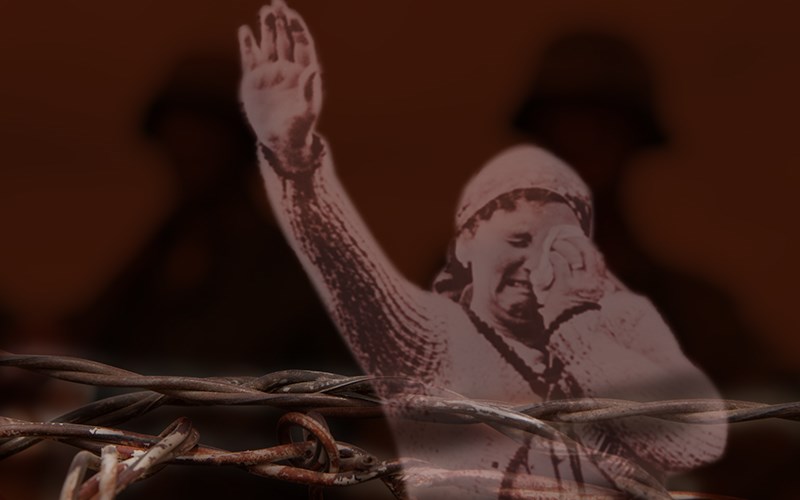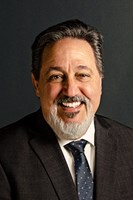

It seems everyone is a fascist today. As an insult to people that disagree with you – or simply for people you don’t like – the word is almost as ubiquitous as Nazi or the Grand Boogeyman himself, Hitler.
“Donald Trump is a fascist,” said columnist Michael Kinsley in the Washington Post after the 2016 election of the conservative candidate. On the other hand, last August conservative talk show host Sean Hannity said George Soros-backed Media Matters, a left-wing group, was fascist. How could someone who is a conservative and something that is liberal both be fascist?
Or take the current “it” group “Antifa,” the latest craze among the tiny sliver of the population that hates everything and everybody. The name stands for “anti-fascist,” and when they show up to protest, these self-described anarchists are usually dressed all in black, with most of their faces covered by black bandanas. They were the ones seen on television during the February riots on the campus of the University of California-Berkeley, burning the American flag and shattering windows.
Rowdy organizations like this seem to have as long a shelf life of popularity as the latest singing sensation spawned by America’s Got Talent, which is to say, not very long. Remember “Occupy Wall Street”? How about “Black Lives Matter”? Now, it’s on to Antifa!
However, whenever I see these mostly young, white, (seemingly) middle-class kids being interviewed – sans the ninja get-up – I doubt very much they have the foggiest idea what fascism is. The reason for that is simple: It’s not easy to define fascism.
Historian and political scientist Robert O. Paxton said in his book, The Anatomy of Fascism: “Fascist movements [in the 20th century] varied so conspicuously from one national setting to another, moreover, that some even doubt that the term fascism has any meaning other than as a smear word.”
A working definition
So, I’m going to take my own shot at defining fascism in as simple and concise a way as possible. Why not? Everyone else is.
My main contention is that too many people start by focusing on ideology – “Death to the Jews!” Or perhaps they focus on tactics – gangs of thugs in the street, dressed in brown shirts or black, shouting slogans while arms are raised in various salutes, followed by a mass book burning and wienie roast. This not only misses the point; I think these habits cause the myriad of different definitions noted by everyone who studies the subject.
Instead, the emphasis should be placed on the form of government, its power, and its reach. Then – and only then – should there be a consideration of and cataloging of the other aspects of these movements.
Thus, my definition: Fascism is a humanistic political philosophy that advocates for at least three governmental realities: (1) statism, (2) absolutism, and (3) totalitarianism.
(In briefly examining these aspects, I will use simple definitions from Merriam-Webster. Be aware that there is some overlap and interdependence between these ideas. However, all three are required for a real fascist movement to exist.)
(1) Statism
Let’s start with who’s ultimately in charge of a society. Statism is the “concentration of economic controls and planning in the hands of a highly centralized government often extending to government ownership of industry.”
Of course, not all statism is fascist, but fascist states have always had strong ties with industries, companies, and corporations. However, a fascist state is not one in which economic powers run the country, or even one in which political and economic power is shared. Instead, fascism requires that the state control and channel economic power to fulfill state goals – such as the buildup of military might in Benito Mussolini’s Italy and Adolph Hitler’s Germany.
(2) Absolutism
Just how much power does the state possess in a fascist regime? Well, all of it. Merriam-Webster defines absolutism as a political theory in which absolute power is “vested in one or more rulers.” It is “government by an absolute ruler or authority: despotism” or dictatorship. The word also carries with it the sense of rulership under “an absolute standard or principle.”
Not all fascist movements in the 20th century succeeded in capturing the levers of power in a nation, but when they did, a dictator always ran them.
In a constitutional republic like the United States, of course, the Founding Fathers wanted “We the people” to be in charge. Therefore, the power of the government restricted and separated, with internal checks and balances. This was to avoid the concentration of power in the hands of a few, which can result in tyranny. The founders knew their history and knew that tyranny was eventually a real threat to any democratic form of government.
(3) Totalitarianism
So a fascist government concentrates power in the hands of the state, and that power is absolute. However, does the government rule every area of life – or just politics and the economy?
A fascist state is always a totalitarian state. According to Merriam-Webster, totalitarianism is “the political concept that the citizen should be totally subject to an absolute state authority” in every area of life. School. Marriage. Sports. News and information. Entertainment. Religion. You name it; the state controls it.
Cleaning up around the edges
It becomes apparent from the above definition that it would include communism as a fascist movement. That might seem problematic, simply because many people see fascism as a totalitarian threat from the right, while communism is a threat from the left. Therefore, the two philosophies cannot both be fascist, right?
I think they can be. In my opinion, communism is a form of fascism because a fascist movement is about the power and function of government, not ideology. The purposes to which an all-powerful state is turned would be determined by the particular ideology that powers the movement. However, the instrument of fascism – and its true identifier – is the form of the state itself.
It is easy to become obsessed with the bad ideas to which people hold, but the perniciousness of an ideology does not make it fascist. Jim Crow laws in the United States were evil, but they weren’t fascist. In fact, such blatant discrimination against blacks occurred in the middle of a representative democracy.
So what separates the evil ideology of Jim Crow laws from the evil ideology of Nazism – which, for example, declared Jews and others as “subhuman”? Nazism was fascist because it demanded an all-powerful state to accomplish its goal of solving “the Jewish problem.” In fact, not everything on the “to do list” of the Nazis was evil. Part of its agenda was to alleviate the economic devastation that occurred in Germany between the World Wars. Economic improvement is not evil – but accomplishing it through a totalitarian state makes it fascist.
In fact, the ideologies of fascist states can actually be competitors, as in the case of Nazism’s conflict with communism in Germany prior to World War 2. The focus of fascism in Nazi Germany was nationalism and racism – a belief in Aryan supremacy. However, communism – again, itself a form of fascism – was focused on the Marxist emphasis on the international economic struggle against capitalism. For communists in Germany, the nation was not of primary importance, only the international struggle was. As a result, Nazi leaders could not tolerate the internationalist focus of communism. They hated communists. Moreover, racist Nazis pointed to what they perceived to be Jewish – and thus an outside, non-Aryan – influence on communist movements.
The existence of competing fascist movements is not particularly hard to understand. Human beings acquire power to accomplish things, and the objectives of particular movements can be very diverse. Why should we consider it an oddity if they collide? After all, democratic governments can oppose one another, can’t they? Why can’t fascist governments do the same?
Yet how can a communist regime be considered a form of fascism if Marxist doctrine sees the state as ultimately withering away? Isn’t communism therefore anti-state? Doctrinally, according to Marxist theory, yes. The salient point, however, is that Marxism sees the state as eventually withering away. Until that day comes – and it has never happened in any communist country – the state calls the shots and does so according to the above definition. It is fascism, pure and simple.
Simply put, then, fascism is a modern dictatorship, in all of its many permutations, expressed through a state with absolute power over every area of human existence. It might seek to benefit a nationalist ideology or an internationalist one, but these dictatorships are fascist.
However, if that is the case, in what ways would fascism be different from, say, a Roman emperor, or some European monarchies, in which the state was also possessed of absolute power? After all, most of human existence has been under the heel of emperors and kings, themselves ruling over all-powerful state structures.
This is where the humanistic nature of fascism comes in. Over centuries, the democratic movements in Western civilization broke the power of monarchies but also did something else: They began breaking the bond between government and religion that has existed since human civilizations began. Whether it was the pagan pantheon of ancient Egypt, the divinity of Roman emperors, or the European conception of the divine right of kings, government got its mojo from God or gods.
As the Enlightenment and the horror of religious wars in the West ate away at this foundation, another idea began to spill into the vacuum in the latter half of the 19th century. It was the ascendancy of Darwinian atheism and secular humanism as the reigning philosophy of human existence. For fascist movements and the regimes they seek to create, man is at the top of the heap, calling the shots. He answers to no one.
If the above discussion is an accurate reflection of fascism, then Donald Trump is not a fascist. The Democratic Party is not a group of fascists. Corporations are not fascist just because they’re big and powerful.
On the other hand, there are always dangerous trends, and savvy political observers are correct to warn of the hazards of trending in the wrong direction. That goes for either side of the political spectrum. We would all do well to stay on the alert – and be grateful for all who desire to preserve true liberty.
However, that means we must withhold use of the term for the day when true fascists arise.

